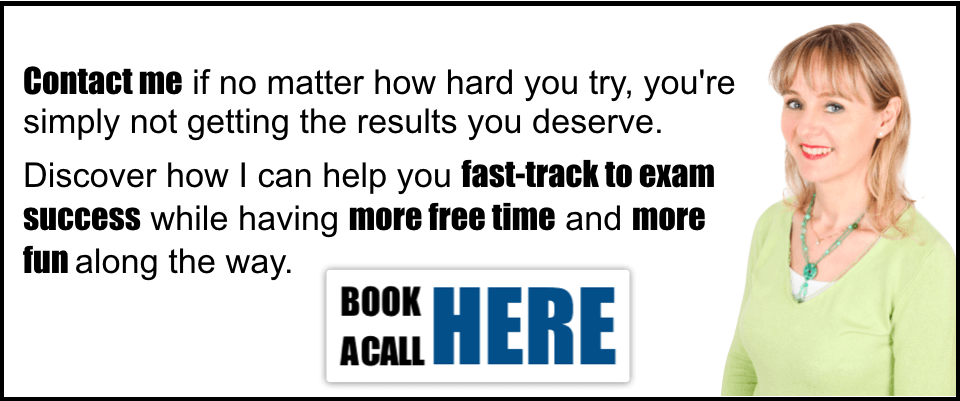 Remember when learning was fun?
Remember when learning was fun?
Building castles in the sand pit, sloshing water from one container to another in the water tray, messing about with paints?
Learning by doing; learning from others; sharing discoveries and sharing information… And all that means learning is fun, of course.
But then something happens as we ‘progress’ through the school system and many kids get left behind. And if that’s you, what are you likely to conclude when apparently everyone else has got the hang of it and you haven’t?
Well, there’s patently something wrong with you, isn’t there?
You have to hope that no one else has noticed yet and you try to keep it quiet.
We are hardwired to belong; be the same; to fit in; to exist. It goes right back to the time that we lived in caves. In the cave it was safe and we became very good at making ourselves acceptable, thus avoiding being kicked out of the tribe into the big scary world outside where certain death is only a matter of time.
 And so it becomes for us like a life-and-death situation, whenever something reminds us that we not safe; that we don’t belong; that there’s something different or wrong with us.
And so it becomes for us like a life-and-death situation, whenever something reminds us that we not safe; that we don’t belong; that there’s something different or wrong with us.
That’s stressful.
Bearing that in mind, what happens when you encounter the next tricky thing at school that you’re not sure about? Okay so you might take a stab at it, but that’s a dangerous place to go… What if you reveal yourself and ‘they’ discover the truth?
You’re different all right. You’re stupid.
 So before long you stop trying. You stop risking rejection. To cover up your stupidity you need some sort of survival strategy, and you might begin to become expert instead at some sort of disruptive behaviour – to distract others from your fatal flaw.
So before long you stop trying. You stop risking rejection. To cover up your stupidity you need some sort of survival strategy, and you might begin to become expert instead at some sort of disruptive behaviour – to distract others from your fatal flaw.
Whichever way you cook it, basically, you drop out.
But even worse than this, you carry around the belief that you’re not good enough.
You’re not good enough
In that case, as you grow up, what sort of a life are you likely to have? What sort of conversations you going to have with yourself? And if, despite everything, someone spots your potential and offers you an opportunity, what’s your response likely to be?
Will you go through life playing small, keeping out of the way, in an attempt to avoid discovery?
 Or will you compensate by being an overachiever, and no matter what you do, it’ll still never be enough? You’ve only got to read interviews and autobiographies of many of our celebrities – actors and pop stars, for instance – to detect that modus operandi over and over.
Or will you compensate by being an overachiever, and no matter what you do, it’ll still never be enough? You’ve only got to read interviews and autobiographies of many of our celebrities – actors and pop stars, for instance – to detect that modus operandi over and over.
Thing is, whenever we’re faced with a challenge, we do what we know. (Of course! What else could we do?) But unfortunately, if what we’re doing doesn’t seem to be working, we still do what we know, but even harder!
Suppose we had the presence of mind to ask ourselves a question instead?
Suppose we were to ask, “I wonder if there’s a different way?” Or “I wonder if there’s a better way?”
Imagine that!
Going back then, to the school scenario…
 I remember how hard it was for me as a teacher in a traditional classroom set up, to ensure that every single child got the learning I intended. And if that wasn’t hard enough, much of my attention was already taken up with maintaining order and avoiding a riot!
I remember how hard it was for me as a teacher in a traditional classroom set up, to ensure that every single child got the learning I intended. And if that wasn’t hard enough, much of my attention was already taken up with maintaining order and avoiding a riot!
There’s only so much of me to go round. Ideally, despite every child being at different levels of ability, experience and comprehension, you keep everyone engaged and motivated to succeed. Of course you want to make sure learning is fun too. But with 30 or more pupils in the class, it’s impossible to get immediate feedback from every child, at each and every stage of the activity. You do your best, and trying to cater to everyone becomes second nature.
After 20 years of it I can do it in my sleep. No, I mean, I really do do it in my sleep! I still have disturbing dreams of frantically spinning proverbial plates in the classroom!
But what if there’s a different way? A better way?
And what if it’s staring us in the face?
 We’re natural learners.
We’re natural learners.
We’re learning all the time and learning is fun. Why do you think we’re so attached to our smart ‘phones? Most of our learning happens informally. And it always has.
For example you might learn from your children how to operate the Blu-Ray machine. (Does anyone still use Blu-Ray?) You might ask a colleague how to remotely connect your laptop to the printer in the office next door. You might get grandma to show you how to create a crochet double knit stitch; or someone at the yacht club, a cleat-hitch knot… (whatever the heck, that is!)
These days we don’t even need to go to another actual person, we can turn to YouTube and the like, to discover how to do just about anything. In fact, in a recent survey in the States, it was discovered that 80% of 15 to 21 years olds expect to learn how to do something by going to YouTube!
 And we love instant information, because learning is fun. Why do you think there’s a name for paying more attention to your ‘phone than your dinner date? Snubbing company and fiddling with your phone is called ‘phubbing’! I kid you not! Everyone does it. Even Angela Merkel!
And we love instant information, because learning is fun. Why do you think there’s a name for paying more attention to your ‘phone than your dinner date? Snubbing company and fiddling with your phone is called ‘phubbing’! I kid you not! Everyone does it. Even Angela Merkel!
And, oh my! The apps you can get now! Personal technology has come of age.
When I originally created Genius Material all those years ago, no one could even tell me what the best format was for my video recordings. No one knew yet. I had to work it out for myself. Things were already beginning to change pretty rapidly. iPads were just about to be born…
And that changed everything.
 As you know, everyone can become Genius Material, with the right strategy.
As you know, everyone can become Genius Material, with the right strategy.
It doesn’t matter which exam you’re aiming for. If you need to learn and retain information… it works.
You probably know that in the four-month trial, 82% of users passed their exams with 70% and more. 42% of users passed their exams with 80% and more. And this was with exams that many had failed multiple times previously.
Have a look at the many testimonials.
Where I’ve been coming from is, while not everyone needs to pass exams but if by doing so it keeps your career options open, and your self-esteem intact, then you had better find out, and quickly, the best way for you to learn, especially if what you’re currently doing (i.e. what you know to do) isn’t working.
My mission is to get people to use their brains better; to think about what they’re trying to achieve, whether personal or professional and if what they’re doing isn’t working, do sommat different!
Genius Material works. And I want more people to get the benefit. Especially children – catch them before they mistakenly decide they are a failure.
I need your help to create, and I quote, “The First Generation of Super Achievers.”
A learning game-changer
Let’s transform the way our children engage with information at school, college and university.
BTW: Did you know there’s a version of Genius Material for teenagers? In fact, that’s where Genius Material started life. But it works for anyone doing any learning whatsoever, not just for exams.
I’d love to tell you more, but as I said to Michael Gove (our former Education Minister) a while back when he asked for more information,
“If I tell you, I’ll have to kill you!”
So for the moment, I’ll leave you with Regency University’s Dean of Students’ description of Genius Material. Because he reckons it’s “the missing link”.

The results that Genius Material facilitate exceeds every learner’s wildest dreams.
It’s a game-changer and integrates seamlessly into our lives, making learning as natural and as fun as it ever was.
Are your kids taking exams?
Here are some last-minute tips for stressed teenagers embarking on exams…
https://staging.genius-material.com/keep-calm-and-carry-on-revising

